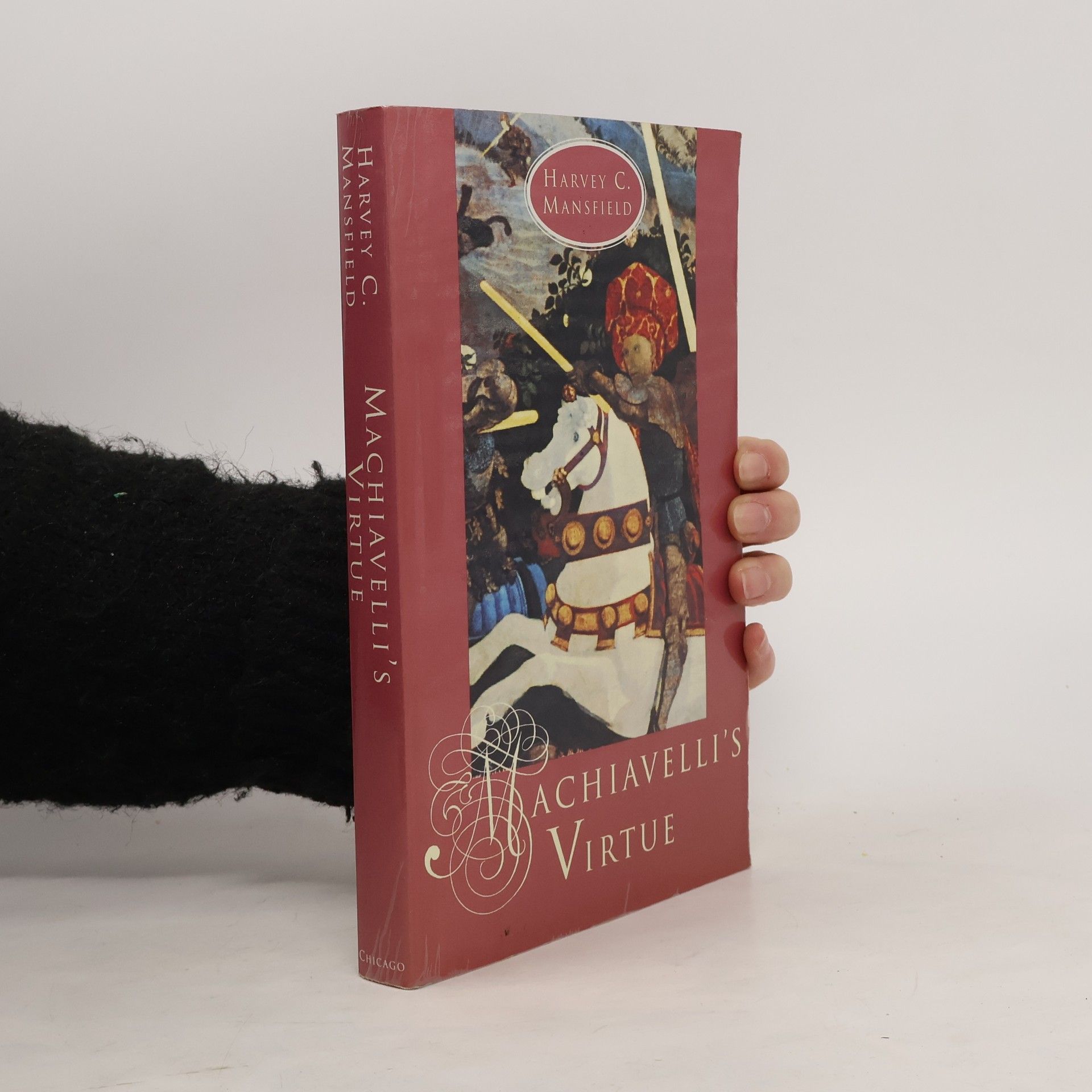Uniting thirty years of authoritative scholarship by a master of textual detail, Machiavelli's Virtue is a comprehensive statement on the founder of modern politics. Harvey Mansfield reveals the role of sects in Machiavelli's politics, his advice on how to rule indirectly, and the ultimately partisan character of his project, and shows him to be the founder of such modern and diverse institutions as the impersonal state and the energetic executive. Accessible and elegant, this groundbreaking interpretation explains the puzzles and reveals the ambition of Machiavelli's thought. "The book brings together essays that have mapped [Mansfield's] paths of reflection over the past thirty years. . . . The ground, one would think, is ancient and familiar, but Mansfield manages to draw out some understandings, or recognitions, jarringly new."—Hadley Arkes, New Criterion "Mansfield's book more than rewards the close reading it demands."—Colin Walters, Washington Times "[A] masterly new book on the Renaissance courtier, statesman and political philosopher. . . . Mansfield seeks to rescue Machiavelli from liberalism's anodyne rehabilitation."—Roger Kimball, The Wall Street Journal
Harvey Claflin Mansfield Boeken
Harvey Mansfield is hoogleraar Bestuurskunde aan de Harvard University, bekend om zijn algemeen conservatieve standpunt over politieke kwesties in zijn geschriften. Zijn werk duikt in belangrijke politieke filosofen en constitutionele bestuursvormen, en biedt inzichten in blijvende vragen van politiek denken. Mansfield's onderzoek verkent de fundamentele aard van het politieke leven en bestuur.




Manliness
- 304bladzijden
- 11 uur lezen
This book invites—no, demands—a response from its readers. It is impossible not to be drawn in to the provocative (often contentious) discussion that Harvey Mansfield sets before us. This is the first comprehensive study of manliness, a quality both bad and good, mostly male, often intolerant, irrational, and ambitious. Our “gender-neutral society” does not like it but cannot get rid of it.Drawing from science, literature, and philosophy, Mansfield examines the layers of manliness, from vulgar aggression, to assertive manliness, to manliness as virtue, and to philosophical manliness. He shows that manliness seeks and welcomes drama, prefers times of war, conflict, and risk, and brings change or restores order at crucial moments. Manly men in their assertiveness raise issues, bring them to the fore, and make them public and political—as for example, the manliness of the women’s movement.After a wide-ranging tour from stereotypes to Hemingway and Achilles, to Nietzsche, to feminism, and to Plato, the author returns to today’s problem of “unemployed manliness.” Formulating a reasoned defense of a quality hardly obedient to reason, he urges men, and especially women, to understand and accept manliness, and to give it honest and honorable employment.
This is the first book on the 'effectual truth,' a new kind of truth invented by Machiavelli that led to the invention of scientific method in cause and effect, passed along to philosophic successors, such as Montesquieu 230 years later. High-level thinking in words you can understand.
Książka Harveya Mansfielda to kompleksowe studium męskości, ukazujące zarówno jej negatywne, jak i pozytywne aspekty. Autor, korzystając z nauk przyrodniczych, literatury, filozofii i historii, bada różnorodne warstwy męskości, od agresji po cnoty i filozoficzne podejście. Analizuje, jak męskość manifestuje się w czasach konfliktów, wprowadzając zmiany i przywracając porządek. Dzięki asertywności mężczyzn, kontrowersyjne problemy stają się publiczne i polityczne. Mansfield podkreśla, że męskość będzie obecna w społeczeństwie uznającym równość płci, i apeluje o stworzenie przestrzeni, w której męskość może przysłużyć się dobru wspólnemu. W przeciwnym razie, jej obecność może prowadzić do brutalnych działań, oderwanych od moralności. W kontekście tragicznych wydarzeń XX wieku i niestabilnych realiów XXI wieku, wezwanie Mansfielda do uznania istnienia męskości brzmi szczególnie przekonująco. Zauważa, że w badaniach ludzkiej niegodziwości często natrafiamy na różne odmiany męskości, które jej towarzyszą. Problemem nie jest sama męskość, lecz wyzwolenie nikczemności z moralnych ograniczeń, co pozwala na przekroczenie granic dobra i zła.